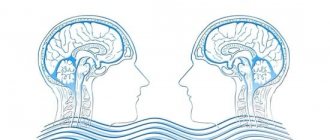Author: V_V_V
04 December 2021 16:11
Tags: infantilism low IQ psychology for the masses emotional deafness
257037
16
IQ allows you to determine the level of a certain group of mental abilities for logic, abstract thinking, and learning. Scientists say that a high IQ is like being tall in basketball, but to be a great basketball player you need other abilities. However, there are also subjective traits of undeveloped intelligence and emotional immaturity. Here are 15 signs of both intellectual and emotional shortcomings that are extremely difficult to combat.
0
Source:
See all photos in the gallery
Interestingly, a high IQ does not necessarily mean that you are smart. It happens that people who do not shine with mental acuity perform excellent IQ tests. The most striking example is George Bush, whose mental abilities were mocked throughout his 8-year presidency. There were too many gross mistakes in his actions, and his idiotic statements on various occasions became the talk of the town. Bush took an IQ test and his result was incredibly high - 120! (A score of 100 is normal, 160 is super high, and 70 is low. We can't help but mention Bill Gates - his score of 160 partly explains his success.) If you've ever taken an IQ test, it was probably an Eysenck test (the creator of the IQ test) or one of its many modifications. By today's standards, these tests can be considered outdated and inaccurate, but they have penetrated deeply into various structures (educational and even military), and now they are ubiquitous on the Internet that it is impossible to simply brush them aside. In fact, the average IQ test measures your ability to analyze new information (both using and not using old) relative to your age. Psychologists remind us that the average IQ test gives not only a very approximate, but also a very average value, because it consists of several subtests, each of which tests different types of thinking. Thus, a person with outstanding abstract thinking and weak verbal reasoning is likely to score only average. Psychologists have the term “emotional intelligence” (EQ), which includes the ability to hear and understand other people, anticipate their behavior, and control one’s own and others’ emotions. Perhaps personality needs to be assessed by both IQ and EQ levels. For example, Harvard University psychology professor Mr. Howard Gardner introduces the concept of “multiple intelligences.” There is a joke that high Eysenck test scores do not indicate a person’s intelligence, but only his ability to pass IQ tests well. There is some truth in every joke: IQ scores have nothing to do with practical intelligence or creative abilities.
Difficulty learning new material
0
Source:
One sign of a person with a low IQ is difficulty understanding new or changing familiar concepts. This is a problem, especially given our time, with its rapid development of technology and changing lifestyles. These people not only find it difficult to understand and accept more complex systems and ways of thinking, but even a simple abstraction is accepted with an internal struggle. They also have difficulty with numbers and sequences. They have to overcome significant obstacles when it comes to analytical processing of information. It is assumed that there are certain barriers for people with low IQ regarding the workings of the mind and the laws of logic. Since IQ tests measure a person's ability to think abstractly, it is this type of test question that seems to cause difficulty. Many of them feel frustrated, this is a constant challenge for them, and they quickly become angry and lash out at others due to their inability to understand abstract categories. Emotionally intelligent people are more flexible and adaptable. They leave their comfort zone because they understand that the fear of the new paralyzes and blocks the road to new victories.
×
Poor control of their emotions
0
Source:
Do you know how to control yourself? Some people have an explosive temperament, and flare up at every little thing, which, in fact, does not require such a violent reaction. It's more than just getting off on the wrong foot or feeling frustrated by every challenge. Where does this anger come from? There is often simply no rational explanation. However, a person with low IQ and EQ is constantly in a state of uncontrollable rage, and any seemingly small catalyst can trigger an attack of anger, and for them everything seems quite logical and rational... Such people tend to have outbursts of rage in public place or any other places where scandals are inappropriate. Don't get us wrong, if the rude lady in front of you at Starbucks in line happens to be having a bad morning, that doesn't mean she's lacking in IQ points...although it very well may mean...
They think they have all the answers
0
Source:
You might think that a know-it-all has a higher IQ than most people, but quite the opposite. There are people who really seem like walking encyclopedias, and there are others who don't really know that much but put on airs like they're the smartest. The latter do not necessarily need facts or logic, sometimes they are simply so full of information that it should alert you: perhaps this is not a very smart person. This has little to do with real intelligence; rather, this is a classic excellent student who is cramming. People with lower IQs often feel out of place when trying to socialize into society, so they imitate their own perception of an ideal role model, which includes the attitude of always having the answers to everything. They do not have the ability to “read” information about the social environment and understand the hierarchy of a particular group (who is at the top, who is rejected, etc.); they do not know how to recognize the social signals that their interlocutors give, and which, in fact, may be are not at all aware of issues that randomly come up in conversation.
Illiterate life planning
There is a fairly popular myth in society that keeping diaries or diaries is the lot of children, teenagers and narrow-minded adults. However, in reality, the basis of learning to plan life usually begins with the skill of organizing and allocating one’s own resources and time.
At the beginning of their journey, most successful businessmen learned to competently plan their affairs and daily routine, and keep records of income and expenses. Skillful ordering of life, in turn, is considered a sign of a person’s high level of intelligence.
Failure to learn from your mistakes
0
Source:
If you are a living person, you make mistakes. It is undeniable that many of us make the same mistakes twice, but there are people who, in principle, do not learn from their mistakes. It's like putting your hand over a fire and getting burned, and continuing to repeat this action every five minutes until it completely self-destructs. Emotionally developed people do not take mistakes to heart, but they also do not ignore them. They benefit from the experience and are always ready to admit their guilt. While people with low levels of emotional intelligence never apologize for their mistakes and often try to blame others for their mistakes.
Types and functions
There are different types of intelligence that allow us to explore this concept further and define an intellectual level that is not unitary in nature, but some of these intelligences are very recognizable and visible.
Intelligence is the ability to learn concepts, reason on various issues, make decisions, among other things. But beyond knowledge of intelligence itself, there are different types of intelligence that serve to explain certain specific aspects.
People must be able to use their knowledge to find a useful solution to a problem they have identified in their environment.
Within this there are two types:
These are the most well-known types of intelligence that exist to understand the skills that are integrated into them and the more specific areas in which they can be applied.
Inability to understand other people's emotions
0
Source:
Emotional deafness is characteristic of people with low levels of IQ and EQ. At parties and other social situations, they do not understand body language or read signals; their communication is ineffective and they have difficulty understanding what other people are doing and why. Although there are many smart people who are "socially awkward", they at least know how to avoid conversations or unnecessary interactions with people they are not interested in (FYI, go to a party and sit in the kitchen with the dog all evening , is certainly a wise conscious decision). Emotionally undeveloped people do not see the limitations of social protocol - Professor Sheldon from The Big Bang Theory is a great example. Emotionally developed people quickly calculate the emotions of others simply by their eyes and gestures, this helps to adjust their behavior and make the right decisions. After all, there is no point, for example, discussing important things with a person immersed in his own problems, or trying to build communication with a completely indifferent interlocutor.
Immaturity of thinking
It manifests itself in the form of infantilism in a person’s views, reasoning, worldview and behavior. It is often found in adult men and women as an inability for normal communication and social interaction with the outside world.
Experts suggest that current generations of children are growing slower in terms of mental maturity than previous generations. The influence of modern technologies also leads to a deterioration in verbal and non-verbal communication skills, which undoubtedly reduces the intellectual abilities of humanity as a whole.
Lack of basic social skills
0
Source:
There are skills that help us live day to day, communicate effectively, interact with others, and be able to take care of our basic life needs. People with low levels of emotional and intellectual development will find this short list too difficult and will need help with two or more items on this list, and on a daily basis. They may forget to wash themselves, or don't know how to defrost processed food in the microwave, not to mention more complex cooking tasks. This is not because they find it physically difficult to perform these actions, but because they do not have the mental capacity of the average person. They will have to be reminded of the simplest things if they are unable to remember them on their own. As a rule, such people live under someone's supervision. Here it is appropriate to recall the phenomenon of modern Japan called “hikki” or “hikikomori” - literally meaning “acute social isolation”. This term refers to people who refuse social life, do not have a job and live on dependent relatives. Japan's Ministry of Health defines hikikomori as individuals who refuse to leave their parents' home, isolate themselves from society and family in a separate room for more than six months, and do not have any work or income. Psychologist Tamaki Saito, who coined the term, initially estimated that the number of hikikomori in Japan was just over a million, or about 1% of the country's population. But according to a Japanese government report, there may be many more such people. “The Lost Generation” - that's what they are called Self-isolation, demonstrated by hikikomori, is a common symptom in people suffering from depression, obsessive-compulsive disorder or autism spectrum disorders (this includes Asperger's syndrome and "classical" autism).
Infantilism of organic origin
Emotional immaturity in a teenager can be caused by traumatic factors in the early stages of development of the body, right up to the prenatal period. These mental states are studied and corrected by doctors and refer to pathologies that are characterized by disturbances in behavioral reactions without signs of decreased mental abilities. Emotional maturation slows down or stops developing at the teenage level.
There are 4 types of anomalies:
- Inhibited development in the absence of parental education or the use of abnormal pedagogy.
- Organic defects of the brain, externally manifested in visible slowdowns of thought processes, superficiality of experiences and noticeable emotional-volitional immaturity.
- Manifestation of character pathologies in the form of selfishness, deceit, conflict, love of excesses and provocative actions.
- With a normal level of intelligence, there is no patience when performing educational activities, only games and entertainment are interesting, and if adaptation is necessary, neurotic-type disorders arise.
The emotional immaturity of children and adolescents in such a scenario of ontogenesis is corrected strictly under the supervision of psychologists of appropriate qualifications, since the prognosis is positive, but it requires the efforts of parents and doctors.
They live beyond their financial means
0
Source:
High financial IQ is another subtype of intellectual development indicator. The Kardashians are used to spending money like it grows on trees, but they have bank accounts that are pretty stacked with cash. And in order to support their extravagant purchases, people with low intellectual levels have to waste money with completely empty bank accounts. Credit and credit, of course, are different. And there are justified expenses. But the desire to possess luxury goods without having the means to do so, and the tendency to get bogged down in endless debts, indicates a clear narrow-mindedness and immaturity. You need to use a loan carefully, clearly understanding for what purposes you are taking it and how justified these purposes are. And it is imperative to know in advance how you will give it away. But there is a whole army of people who do not understand the obvious: they will have to pay back, and with interest! Incredible, but true: look around, how many people take out loans for expensive cars that they cannot afford, without even having their own home and savings. Failing to plan your budget and getting bogged down in debt is a clear sign of low financial IQ. We hope this isn't about you!
Causes
The sources of infantile behavior are psychological traumas of early periods of life and characteristics of relationships with parents. During the period of growing up, the child pays attention to the satisfaction of needs that form the basic personal rights to life, independence, freedom to express one’s opinion, love and personal point of view. If a basic sense of security is not acquired, then in adulthood the psyche will show emotional immaturity, the causes of which were not identified in a timely manner.
They are focused on themselves
0
Source:
Is the navel of the earth a familiar situation? Being socially inept not only means that people with low IQs cannot function in a social environment; it also means that they tend to see the world through their own lens. They are unable to look at ideas, opinions through the eyes of someone else. They only care about their own position and point of view. Their selfishness does not arise out of malice, such is their nature, and it is based on their intellectual potential. Seeing the world through other people's eyes and taking their needs into account requires the ability to perceive abstract concepts, but this is emotionally complex and psychologically difficult. Emotional egoism is characteristic of people who, when perceiving the world and assessing situations, are so fixated exclusively on their own emotions that they think too little about the feelings of others.
Smirnov's formula
The relationship between the intensity of experiences and their polarity is reflected in the postulate that emotion is the difference between the necessary and received volume of information processed by the brain. This formula bears the name of Smirnov and states that emotions become negative when there is a shortage of incoming information and positive when there is an excess of it.
A convincing illustration is the example of the need to satisfy hunger. A man, hungry, looks for provisions stored in advance. When an untouched portion is found, the experiences are neutral, the information flows are equal. If food is not found, the emotions are negative, their intensity is proportional to the share of what was lost; if suddenly there is more food, the assessment of what is happening changes to positive.
The conclusion is suitable for managing emotions and is formulated as follows: positive mental sensations arise when receiving pleasant information and intensify with an increase in its volume, negative ones are formed when there is a deficiency of it.
They don't take criticism
0
Source:
Criticism, of course, varies. And any criticism should be accepted with dignity, humor and absolute calm, and then analyzed - constructive or trolling? And draw your own conclusions - ignore or take note, correcting your actions. The process described above, oddly enough, is completely beyond the capabilities of an emotionally and intellectually undeveloped person. He can neither analyze criticism for its constructiveness, nor distinguish good advice from simple envious lies. Lacking effective communication skills and not being able to control himself, a person with a low IQ cannot cope with any criticism. They see it as an attack and a threat, rather than words that give them a chance to grow and develop. Critical analysis is an attack on everything they stand for, or at least that's what they believe. Stubbornness and intransigence are common accompaniments of such imperviousness to criticism. Such people certainly need help.
They blame everyone around them for their own failures
0
Source:
Very smart people are able to assess probable risks and understand the consequences of their decisions. Less intelligent people will not look for the reasons for their failures in their own mistakes; finding fault with themselves is not in their selfish nature. Instead, they blame anyone for their failures - parents, spouses, colleagues, and so on. Self-reflection is a sign of inner work, analysis and the process of self-improvement; it is not for nothing that smart people usually do not consider themselves as such. Success in life largely depends on how a person reacts to failure. People with a growth mindset believe that, even with effort, they can improve everything. As a result, they outperform those with a fixed mindset, even if they have a lower IQ. A high IQ, when faced with adversity, helps to seek solutions to one's problems, unlike people with a low IQ, who begin to wallow in self-pity and lash out at others with blame for their own disasters.
Disputants without brakes
0
Source:
Some people are just argumentative no matter what their IQ level is. There are those types of people who are always on the verge of being offended, they are just waiting to start a debate on any issue. Among them there is a fairly high percentage of people with low IQ levels, because they do not know how to properly evaluate their emotions and do not know when to stop in an argument that becomes too heated. They are unable to respect opinions different from their own. And they lack the intelligence and delicacy to remain silent in certain situations. Sometimes for them such behavior becomes a tragedy - they simply drive themselves into a corner and doom themselves to isolation. They should ask themselves: what do I want? Be right at all costs and have the last word in an argument? Or I want to be a calm and happy person, able to respect others. But this requires brains and an IQ slightly above average!
Physiological mechanisms
The brain controls the behavioral motor reactions of the body, the emotional component is ensured by the activity of its area called the amygdala.
The production of hormones and mediators is programmed at the gene level, volitional intervention is extremely limited. If the mechanisms of the amygdala are activated, then the resulting basic brain reaction dominates in any situation, even in the absence of threats or rewards, and the calming mode does not set in soon. Knowing these nuances, you can influence these types of emotions and develop skills to manage their intensity. Consequently, methods of influence must be selected in advance, taking into account existing capabilities, especially since most emotional processes are necessary for the life of the body.
They don't know how to plan
0
Source:
We have already mentioned that new ideas and concepts are difficult for a person with a low IQ to comprehend. Not everyone has the ability to plan their affairs. There are a huge number of tasks, they are all diverse and most of them are not related to each other. It is almost impossible to remember everything. Keeping diaries and using various reminders is possible, but it happens that they only confuse the situation more. Especially when it comes to multi-stage tasks. For a person with low IQ and EQ, this is almost impossible to solve. They are simply unable to plan for anything, be it a daily work plan or a long-term event. Combine this with an inability to plan finances and an imperviousness to criticism, and the result will always be a failed project - no matter whether we are talking about organizing a party or a quarterly report. Any attempt to help or control will be perceived as mistrust and insult. Truly, touchiness is a sign of weakness! The strong will accept both help and advice.
Don’t stay in one job for long
0
Source:
Some employers demand a lot from their employees, while others take a more relaxed approach that requires little to no effort. For someone with a low IQ, both of these options are too difficult to handle. As we have already discussed, they are unable to plan their work, do not understand how to acclimatize to the work environment, and are poorly trained and socialized. They are tolerated for some time, they may even go through a probationary period, but sooner or later it turns out that the person cannot cope. As a rule, this cycle is equal to a year. So if a person comes to work for you and changes jobs every year, don’t rush to hire him! And, if you look at your work book and see a similar picture in it, then you should think about it. If you have constant rush jobs at work, you constantly live in a situation of lack of time, overwork, and at the same time do not stay away from one job for more than a year - stop and look at the situation from the outside.
How to develop emotional intelligence
- Educate yourself. To do this, you need to write down events and what emotions they caused you over a certain period of time (for example, a week). Write about everything: how you felt when you woke up in the morning, what you feel when you drink your first cup of coffee, when you drive to work, when you get a scolding from your boss, when you meet with friends, and so on.
- Determine how your body reacts to different emotions. Do you feel butterflies in your stomach when you're in love? How do you behave during times of stress: do you want to cry or, on the contrary, destroy everything around you? What happens when you get tired? What is the aftertaste of the strong emotions you experienced?
- Find the connection between your emotions and your behavior. For example, if you are irritated, then you transfer the negativity to the one who is nearby. Or, if you are ashamed, you prefer not to communicate with anyone. Analyze this relationship and determine for yourself what you would like to change.
- Find your source of positive emotions. This could be a visit to your favorite cafe, delicious coffee, a child’s smile, a beautiful view from the window, a walk in the forest. This will be your emergency supply for those times when you need positive reinforcement. Become an optimist.
- When communicating with other people, be as open and calm as possible. Clearly argue your position, but don’t push.
- To learn to accept another point of view, try analyzing, for example, television debates. Take the side of one opponent and then the other.
- Develop empathy: often put yourself in the shoes of others, try to imagine what emotions a person is experiencing, how you can help him.
- Be interested in other people, their opinions, positions. Try to guess their emotions by gestures, facial expressions, and voice.
- Determine how you yourself influence people. Are you annoying or making you happy? Are you nervous or calming? You can ask your loved ones this question, but don't be upset by unpleasant answers. There is always an opportunity to fix this.
- Remember: when you begin to understand your behavior patterns, it will become easier to control it. You will be able not to succumb to emotions, but to consciously decide exactly how to act in a given case.
Can't concentrate
0
Source:
People with low IQ are not prone to abstract thinking, and they will not think of engaging in quality training to expand their skills and develop their mental abilities. They focus on trivial things and much can be said about them based on their primitive hobbies. We, however, live in a superficial society, and at first glance, a person with a low IQ can sometimes not be identified. If someone chooses to keep up with the Kardashians and doesn't read books or develop their brain, it doesn't necessarily mean they have a low IQ (although sometimes it does). However, if a person constantly interrupts the thoughts of his interlocutor, is unable to formulate a single problem himself and constantly loses his thoughts, this may be due to his intellectual capabilities. It’s easier for him to switch to another topic, closer and more accessible, than to feel like an idiot. You can understand!
Gender and age differences
Intelligence quotient, or IQ, is a standardized measure of a person's mental ability, usually in comparison to a group of peers. IQ scores ranging from 90 to 109 indicate a normal or average level of intelligence. Individual adults typically score somewhere between 70-130, with 100 being the theoretical average. If you score more than 130 points, then your score is higher than the population average, and if you score less than 70, then your score is lower than the population average.
According to research, the average IQ score for each age group can be interpreted as follows:
- The average for teenagers 16-17 years old is 108 points, which means normal or average intelligence.
- For adults aged 18 to 19, the average IQ is 105, which also means normal or average intelligence.
- The average for people aged 20 to 24 is 99, which also indicates a normal or average level of intelligence.
- For people aged 24 to 34, the average is slightly lower at 97, which still means normal or average intelligence.
- After this age, among older people, averages begin to rise again. For example, the average score for people ages 35 to 44 is 101, which is still considered normal or average intelligence.
- For people aged 45 to 54, the average IQ rises to 106, within the normal or average intelligence range.
- The highest average score for people under the age of 64 is achieved by people aged 55 to 64, who score 109 on the IQ scale.
- People between the ages of 65 and 69 have an average IQ of 114, which places them at the highest or above-average level of intelligence. And people aged 70 to 74 who take IQ tests get an even higher average score of 119.
Gender Difference Points of View:
- boys under 15 develop much slower than girls;
- women are typically distinguished by their speech development, emotional activity, creative skills and innovative thinking, while men are more likely to shine with mathematical talents.










